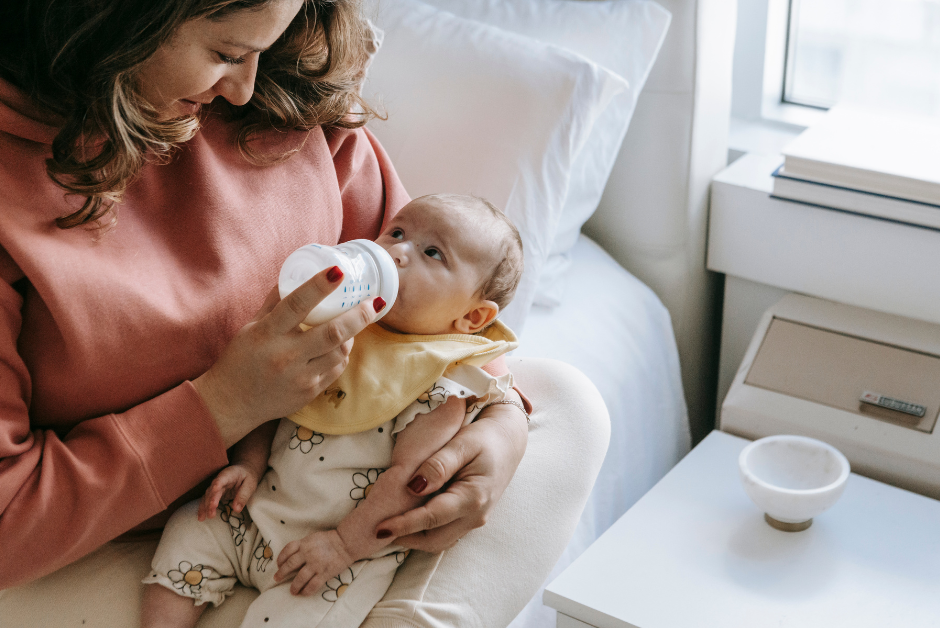There’s nothing like that morning cup of coffee. It’s hot, delicious, and gives you the kind of energizing start that helps kick the day into gear. For many people, especially tired new parents, that first cup is more than just a beverage. It’s part of the daily rhythm. A familiar comfort. A moment of peace before the demands of the day begin.
But if you're breastfeeding or pumping, you may have wondered: is coffee safe for me and my baby?
The good news is yes, coffee is generally safe to drink while breastfeeding or pumping. The key is moderation, knowing what’s in your cup, and paying attention to both your and your baby’s reactions.
Let’s break it down.
When you drink coffee or consume any product that contains caffeine, a small amount of that caffeine does make its way into your breast milk. Research shows that about 1% of the caffeine consumed transfers into your breast milk. That caffeine usually peaks in your milk around one hour after you consume it.
So how much is too much?
Most experts agree that breastfeeding or pumping parents can safely consume around 300 to 500 milligrams of caffeine per day. That range allows for some variation depending on individual tolerance levels and your baby’s sensitivity. For context, caffeine is found in more than just coffee. You’ll also find it in black tea, green tea, energy drinks, soda, chocolate, some herbal supplements, certain over-the-counter medications, and even some protein bars and pre-workout powders.
Let’s talk coffee specifically. The caffeine content in coffee isn’t one-size-fits-all. It varies depending on how the coffee is brewed, the type of bean used, and the brand. For example, a typical 8oz cup of brewed coffee made at home contains about 150mg of caffeine. That means you could have two to three cups of homemade coffee per day and still stay within the safe range.
But if you’re picking up a coffee at a coffee shop, it’s important to know those drinks often contain significantly more caffeine. A small (8oz, “short”) cup of coffee from Starbucks contains about 250mg of caffeine. A medium (“grande,” 16oz) brewed coffee from the same chain contains roughly 500mg of caffeine. That’s the very upper end of the daily caffeine limit recommended if you are breastfeeding. So just one large coffee shop drink might be your entire caffeine allowance for the day.
Some health organizations and researchers set the upper limit closer to 300mg per day to be on the cautious side. That’s why you might see slightly different guidelines depending on the source. If you want to play it safe, aim for under 300mg daily, especially in the early weeks of breastfeeding or if your baby was born pre-term.
Why the concern?
Infants, especially those who are premature or have medical concerns, may metabolize caffeine more slowly than adults. That means even small amounts of caffeine in your milk can take longer to clear from their system. For some babies, this may lead to signs of caffeine sensitivity such as irritability, restlessness, and sleep disturbances. These symptoms are tricky because they’re also common in babies for a wide variety of reasons, so it can be hard to know for sure whether caffeine is the cause.
If you suspect your baby might be sensitive to caffeine, try reducing your intake for a few days and monitor whether anything changes. If you notice your baby seems calmer or sleeps better, caffeine might be a contributing factor. On the other hand, if nothing changes, caffeine may not be the issue at all. Every baby is different.
It’s also worth noting that your own body’s caffeine sensitivity can change postpartum. Some people find that they tolerate caffeine differently after having a baby. You may feel jittery or overstimulated with amounts you were once used to. It’s not uncommon. Hormonal shifts, sleep deprivation, and postpartum healing can all impact how your body responds to stimulants.
So what’s the bottom line?
If you love your coffee, you probably don’t need to give it up. You may still be able enjoy moderate amounts of caffeine without issues. Stick to under 300–500mg per day, keep an eye on how you and your baby feel, and choose lower-caffeine options when possible. Be mindful of hidden sources of caffeine in supplements or medications. And don’t hesitate to skip caffeine altogether if that feels best for your body or your baby’s needs.
Some helpful tips:
-
Time your coffee after a feed or pump session, so the caffeine has time to peak and start clearing from your system before the next session.
-
Switch to half-caf or decaf if you want the ritual of coffee without the full dose of caffeine.
-
If you’re unsure about a specific product’s caffeine content, a quick online search or label check can help you make an informed choice.
-
Keep track of how much you’re consuming over the day. It adds up more quickly than you might expect.
At the end of the day, the most important thing is doing what feels right for you. If you thrive with a cup of coffee in the morning and your baby seems perfectly content, enjoy it. If you notice any signs of sensitivity, take a step back and reassess. You’re the expert on your body and your baby. Trust that.




Share:
Combination Feeding: Breastfeeding Isn’t All or Nothing
Cluster Feeding: What It Is and How to Survive It